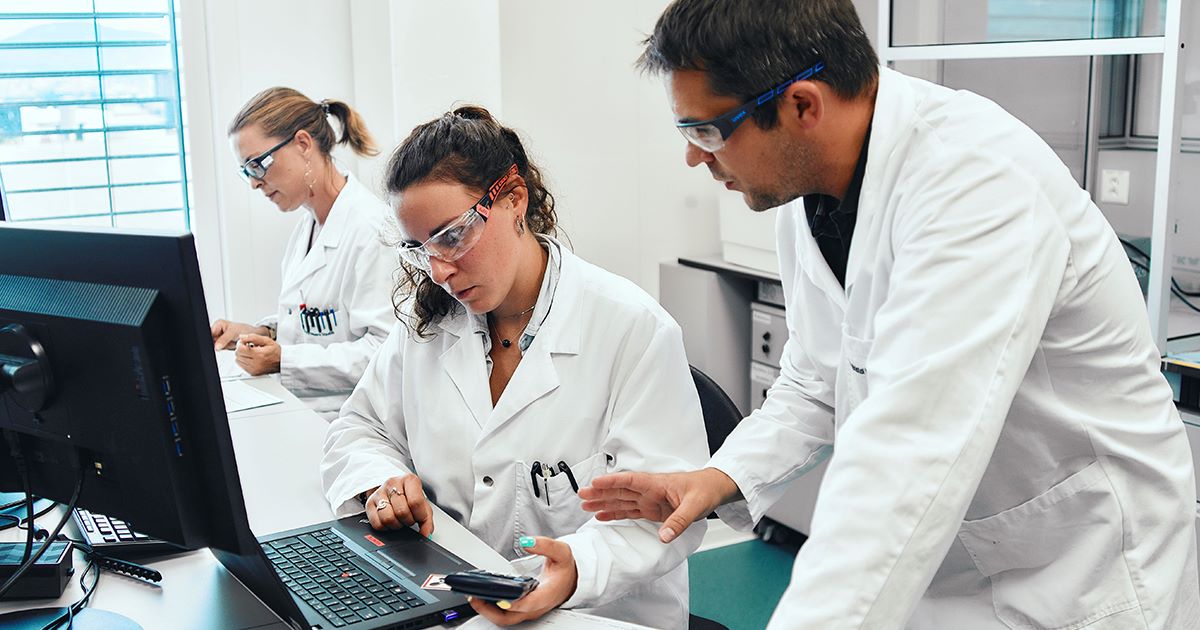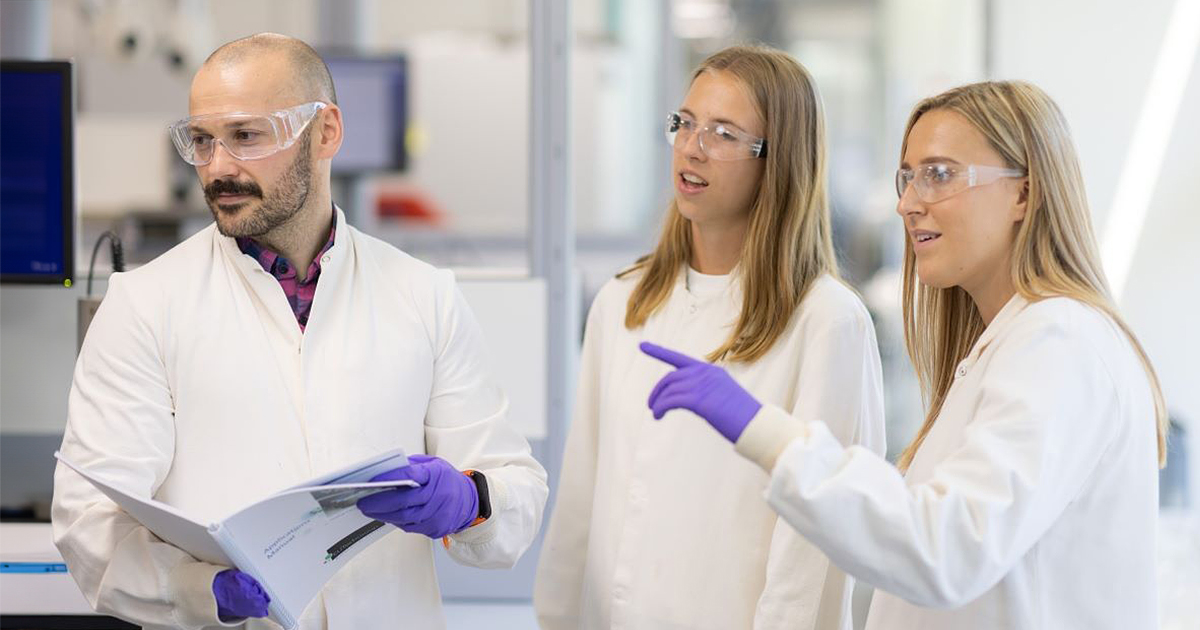If a career as a cell therapy manufacturing manager is currently not on your radar, you might just change your mind after reading the stories of current Bristol Myers Squibb colleagues Seamus Slattery and Arnold Sosa – both of whom found success and satisfaction working out of our Devens, MA and Summit, NJ sites respectively. Each was introduced to the position in a somewhat roundabout way, and they now find themselves immersed in interesting and meaningful work that transforms the lives of patients, while at the same time transforming their lives as well. Their journeys are not atypical among BMS manufacturing staff and are inspirational to anyone considering a career change or transitioning from the military.

Seamus joined BMS straight out of high school as a member of the Devens maintenance tech team. “I started in an entry-level position with direct guidance from colleagues,” he said. “I had some mechanical aptitude, but I learned a lot. Not coming from a pharma or a Good Manufacturing Practice (GMP) area, learning that quality mindset was a great on-the-job education.”
A stint at a chemical manufacturing company started Arnold on a transition after years in Marine Corps active and reserve duty. “It was okay at my previous employer, and I moved up a little bit,” he explained. “But it was just serving the company's bottom line, and I missed the service aspect that I felt in the military. When I found BMS, I felt the camaraderie of being among people in service to somebody as well as growing a company. There are people who are depending on us, just to stay alive.”
Bringing Experience or Starting from Square One
Seamus and Arnold are both prime examples of the diverse manufacturing teams that BMS counts on to keep the flow of our personalized cell therapies in the hands – and bodies – of patients who count on them. In Arnold’s case, years of military experience as a transport aircraft crewman, followed by the chemical plant stint gave him a background that ¬– with learning – propelled him into a manager position. Seamus, on the other hand, has found one growth opportunity after another during his 13 years at BMS, and the advancement continues for each of them – and their team members.

When describing the backgrounds of some of his team members, Arnold echoes the value of inclusion that is so fundamental to BMS. “I have teammates with degrees in biology, biochemical engineering, mechanical engineering” he said. “Some of them are getting their foot in the door in the pharmaceutical world, but once here, they can grow in many different directions. I’ve had people move on to quality control, process engineering, and manufacturing science and technology. There is lots of room for growth.”
The Ins and Outs of Cell Therapy Manufacturing Management
When describing their duties and responsibilities, these managers also enjoy flexibility in terms of rotations and shift times. Currently Seamus works a 6:00 a.m. – 6:00 p.m. shift, rotating between three and two days on and off. Arnold does a similar rotation but begins his shift at 3:30 p.m.. Finding a shift that fits one's lifestyle is an advantage, as is the seamless ways the teams work together.
“Just like when I was in the military, we collaborate across a number of different teams,” said Arnold. “Logistics gets us what we need, whether materials or the actual patient cells. One shift sets everything up for the next, then we do the same.”
“There’s a bit of a start-up feel to this work,” Seamus said, “but we’re on a firm foundation with U.S. Food and Drug Administration (FDA) approvals. Each day I meet with the previous shift, discuss any issues, assign work and manage the workload, and then work on continuous improvement projects with other teams as well. We’re always trying to streamline and find efficiencies, which could help us help more patients.”
Diverse Backgrounds Mean Stronger Teams
When the topic of workforce inclusion and diversity come up, both managers are adamant in touting its role in making BMS a stronger, more dynamic and resilient company, while infusing the culture in every location with the liveliness and energy needed to do such important work.
“Diversity is very important to BMS,” said Arnold. “I have people on my team from all different races, religions, spanning ages and generations, and we all work amazingly well together.”
Seamus concurred, noting that diversity takes many forms. “It’s a diverse and inclusive campus,” he said. “You have PhDs and scientists alongside people who are not, and everyone’s opinions are equally valued in their respective fields.”
Good People Skills Make Great Managers
Not surprisingly, when questioned about what skill sets they’d recommend for candidates interested in their roles, both managers highlighted the importance of cultivating a strong team. “Listening is the biggest thing,” said Seamus. “It’s priceless to hear what my associates have to say, what they need, how can we improve and what’s going well, too.”
“Empathy and openness to understand and listen,” added Arnold. “As a manager, you're dealing with people. In my case, some of them are fresh out of college and experiencing the manufacturing world for the first time. But while their experience may be limited, they show no less value and potential than somebody who's been in the industry 10 years.”
Next Steps in Your Career Journey
Cell therapy is one of the most groundbreaking forms of cancer treatment being studied today, and is still in its infancy, so the growth potential of this science, your career and the ability to help patients are incredible – and manufacturing manager is a critical, hands-on role in this field. BMS' focus on inclusion and diversity means recruiting and retaining people like Arnold and Seamus and their teams, assisting them in their growth and advancement, to help play a role in our mission of transforming patients’ lives through science.





